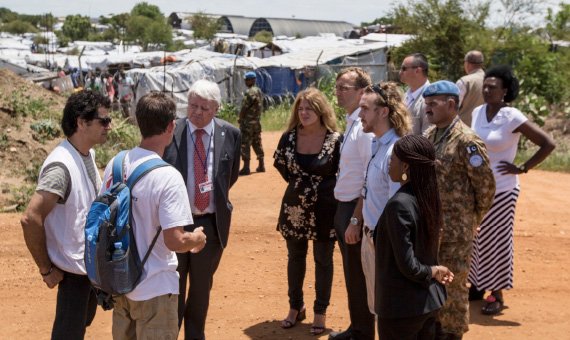
In June, the UN Advisory Group of Experts released their assessment of the UN’s peacebuilding architecture in the report, “The Challenges of Sustaining Peace.” When the UN first established the Peacebuilding Support Office and Peacebuilding Commission (PBC) in 2005 and the Peacebuilding Fund in 2006, it did so with the hope of building a lasting peace in countries emerging from conflict. Ten years later, facing the UN’s mixed track record on peacebuilding, Secretary General Ban Ki-moon tasked the advisory group with developing strategies to improve the existing institutions using lessons-learned from Burundi, the Central African Republic (CAR), Sierra Leone, South Sudan, and Timor-Leste. The case studies chosen highlight the extent of the challenges facing the UN and underscore the need for genuine reform. Despite the original notion that these states could be supported more successfully by the PBC than other conflict-affected states, Burundi, CAR, and South Sudan are each now experiencing renewed levels of conflict. Many of the recommendations in the report may not be groundbreaking, but they are critical in addressing the elements that constrain effective peacebuilding.
One key recommendation is that analysis of peacebuilding missions be performed in the conflict-affected country itself, rather than in the UN’s New York headquarters. The report also calls for the inclusion of more local actors, especially those outside the traditional political elite, in discussions to build national ownership over the peace process. This focus on eliciting and applying local knowledge is at the core of the Corporation’s own initiative on Peacebuilding in Africa, where grantmaking aims at improving the quality, quantity, and accessibility of peacebuilding research by African scholars. Bringing African perspectives to the debate will help contextualize peacebuilding research and align policies with realities on the ground. While the UN and other external actors can support the creation of an inclusive society and sustainable peace, ultimately only national stakeholders can lead it, a lesson hard learned so far.

Other recommendations in the report include a more integrated approach among the different tools in the UN’s box. The notion that the UN’s role follows a clear sequence from preventive diplomacy through peacekeeping to peacebuilding creates false divisions between these interventions. The UN should further dispel the idea that peacebuilding is relegated to post-conflict scenarios, and reframe their conceptual and operational approaches to understand peacebuilding as relevant to all stages of conflict. The report suggests that the PBC, which was created to unite actors and create coherence, should function as the bridge across the different activities. The PBC, however, can only overcome the fragmentation if the other organs, including the Security Council, are willing to collaborate in this endeavor. Finally, the panel urges the UN and other stakeholders to commit for the long haul in order to build more resilient societies and state institutions that can maintain peace.
Along with this report on UN peacebuilding, parallel reviews are underway by the High-level Independent Panel on UN Peace Operations and the High-Level Advisory Group for the Global Study on the Implementation of Security Council Resolution 1325 regarding women, peace, and security. This concurrent look across the UN institutions dealing with peace and security offers a rare opportunity for holistic and innovative reforms that could provide meaningful change in the way the UN handles conflict and conceptualizes its interventions. It is now up to the relevant actors to take the recommendations in all the reports to heart, and, most importantly, implement them in practice.
- Press Releases


